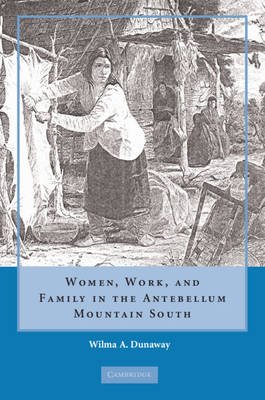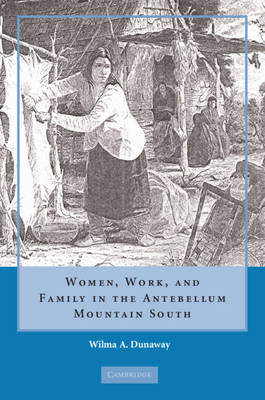
Bedankt voor het vertrouwen het afgelopen jaar! Om jou te bedanken bieden we GRATIS verzending (in België) aan op alles gedurende de hele maand januari.
- Afhalen na 1 uur in een winkel met voorraad
- In januari gratis thuislevering in België
- Ruim aanbod met 7 miljoen producten
Bedankt voor het vertrouwen het afgelopen jaar! Om jou te bedanken bieden we GRATIS verzending (in België) aan op alles gedurende de hele maand januari.
- Afhalen na 1 uur in een winkel met voorraad
- In januari gratis thuislevering in België
- Ruim aanbod met 7 miljoen producten
Zoeken
€ 183,45
+ 366 punten
Omschrijving
This is the first study of 19th-century Appalachian women. Wilma A. Dunaway moves beyond the black-white dichotomy and the preoccupation with affluent females that handicap antebellum women's histories. By comparing white, American Indian, free black, and enslaved females, she argues that the nature of a woman's work was determined by her race, ethnicity, and/or class positions. Concomitantly, the degree to which laws shielded her family from disruption depended upon her race, her class, and the degree to which she adhered to patriarchal conventions about work and cross-racial liaisons.
Specificaties
Betrokkenen
- Auteur(s):
- Uitgeverij:
Inhoud
- Aantal bladzijden:
- 320
- Taal:
- Engels
Eigenschappen
- Productcode (EAN):
- 9780521886192
- Verschijningsdatum:
- 10/03/2008
- Uitvoering:
- Hardcover
- Formaat:
- Genaaid
- Afmetingen:
- 164 mm x 233 mm
- Gewicht:
- 589 g

Alleen bij Standaard Boekhandel
+ 366 punten op je klantenkaart van Standaard Boekhandel
Beoordelingen
We publiceren alleen reviews die voldoen aan de voorwaarden voor reviews. Bekijk onze voorwaarden voor reviews.









